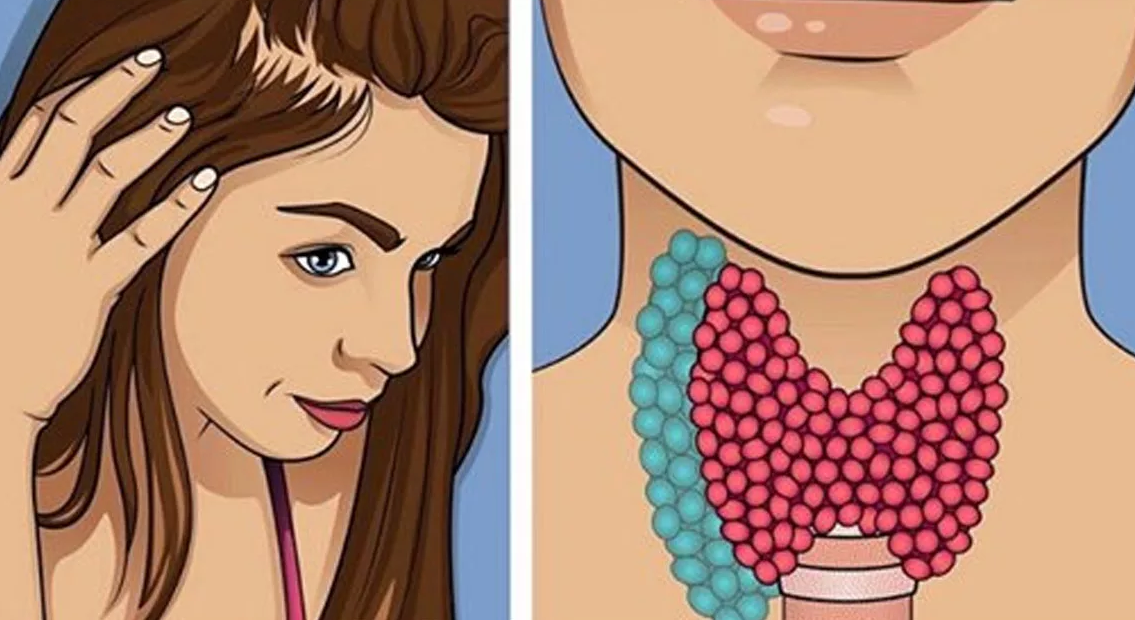They may indicate dysfunction of the thyroid gland , which is directly related to metabolism and general well-being. In this article, eight main symptoms of thyroid dysfunction , you should know!
Although often overlooked , the thyroid gland is very important and is associated with many bodily functions. The thyroid gland is located in the neck , and it mainly produces hormones that help regulate metabolism. If the wrong amount of hormones is produced , then the natural balance of the body is disturbed.
Sometimes diagnosing a thyroid disorder can be tricky because many people don't notice the symptoms , main symptoms of thyroid dysfunction you should know:
8 Signs of a Malfunctioning Thyroid Gland
- Trembling or restlessness. If the thyroid gland produces too many hormones ( hyperthyroidism), you may feel tired , irritable, and agitated because your metabolism is too fast. You may also have trouble concentrating.
- Altered mental response. If you have low thyroid hormone levels ( hypothyroidism), you may feel exhausted or tired.
- Weight changes. Hypothyroidism can cause weight gain , while hyperthyroidism can lead to weight loss.
- Strange pains. If you regularly experience muscle pain , joint pain, or sudden weakness for no reason , you may have a thyroid problem.
- Unusual menstruation. Hypothyroidism can lead to heavy , long periods , and hyperthyroidism is often accompanied by a very short or no period at all.
- Swelling. Hypothyroidism can lead to bloating and constipation. The swelling is often noticeable on the face , which looks odd.
- Unusual perception of temperature. People with thyroid dysfunction often notice that their reactions to temperature do not match those of others. People with hypothyroidism feel strangely cold , and people with hyperthyroidism often feel very hot around.
- Changes. Hair loss or thinning hair can be caused by hypothyroidism. People with thyroid disorders also appear pale or yellow.

8 Natural Treatments for Thyroid Dysfunction
- Stress Reduction – The natural functioning of the thyroid gland depends on the adrenal glands. Too much stress can damage the adrenal glands and lead to thyroid problems. Try to get rid of stress through meditation or yoga.
- Increase your iodine intake - If you're not getting enough iodine , take a supplement or start eating seaweed. Some types of salts may also contain iodine.
- Ditch the silver - Silver amalgam fillings often contain mercury , which can harm your thyroid. If possible , replace fillings with mercury-free ones.
- Do not take gluten - Reducing gluten and legumes in your diet can actually benefit the thyroid , and is generally recommended for people with Hashimoto's disease , a type of thyroid disorder.
- Boost your selenium levels – Selenium is another mineral that helps the thyroid gland function properly. You can get your selenium levels from brazil nuts , mushrooms , salmon , beef, and sunflower seeds.
- Avoid BPA products - BPA is a chemical found in many plastic bottles and food containers. has been shown to upset the hormonal and endocrine system , so it can damage the thyroid gland. Try using glass or stainless steel containers instead.
- Decreased carbohydrate levels. Many types of carbohydrates are loaded with sugars that increase estrogen levels. High levels of this hormone can harm the thyroid , so it should be avoided.
- Get rid of bromine and fluorine. Try to avoid exposure to these chemicals as they prevent the body from absorbing the iodine needed to keep the thyroid healthy. Bromine is often found in vegetable oil and pasta , and fluoride is abundant in toothpastes.
If you notice any of the signs and symptoms listed , you should talk to your doctor and get tested for thyroid dysfunction. Although hyperthyroidism and hypothyroidism can be problematic , you can often treat them with medications or alternative treatments. Once you realize that the thyroid gland is not functioning properly , you need to cure it and then enjoy life!
Save so you don't lose
